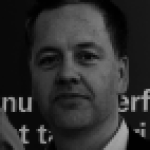
Information technology is changing and will continue to change the way businesses are run, and accordingly how their audit and advisory practices are performed. In Iceland we have seen how traditional industries such as fishery, originally a labor-intensive sector with limited IT dependency, have rapidly changed into sophisticated fishing and processing sites. This shift has required us to rethink how we currently support our clients and what steps we need to take in order to align our service with their increased use of technology. I expect that in the next 10 to 20 years we will be faced with many challenges. However, what with the opportunities we have in re-engineering our traditional services, and by continuing to put advanced technology in place in our online business services, we will be able to respond to the changes in our clients’ environment.
In Iceland we have seen significant changes over the last 5 to 8 years. Our largest industries including fishing and tourism, which were relatively passive in the past when it came to applying IT in their operations, have increasingly been utilizing IT to develop a competitive edge, meet market demand, and increase process automation. This can also be seen in the number of start-up companies focusing on innovative technology solutions aimed at these industries. The solutions are often structured on “established” concepts such as cloud services and IoT, combined with wireless technology, radio frequency identification, sensors and integrated software, which is forcing our clients to rethink how to integrate new technology into their operations. This change is also forcing us, advisors and auditors, to rethink how to best continue to support these organizations. I think it’s safe to say that we will always be faced with challenges like this, but the need to invest and adapt to these changes will only grow.
The fishing industry, for example, is now using sophisticated fishing and processing technology in order to produce high-quality products from limited resources. Companies are integrating their fishing, processing and marketing operations to ensure an unrestricted pathway from catch to markets. The largest fisheries monitor and assess the supply and demand of their products in real time, adjusting their production capabilities and logistics to meet customer demands: something unheard of until quite recently. This would have been impossible without the use of sophisticated technical solutions and a reliable technical infrastructure requiring 24/7 operation and support. This also means that sectors that hitherto were relatively lacking in operational data are suddenly collecting and processing growing amounts of valuable information. The traditional strong focus on the fishing industry together with local knowledge has given rise to international market leaders in software and processing solutions. The same can be said of our renewable energy sector and other sectors where investments in IT have been substantial over the last few years.
With regard to our local audit and advisory practices this primarily means that we need to find ways to utilize the increased processing and storage of information with our clients, and to be an integrated part of this journey, be it as auditors or trusted advisors. We are constantly on the look-out for ways to apply IT to increase efficiency as well as our understanding of how our clients operate. KPMG International has a clear ambition and strong vision in this respect and is investing heavily in D&A technology, training and other initiatives. Clearly, it can be challenging for small firms to keep up with larger firms in this context, but we employ experienced people with the right skills to respond to whatever the market demands. On the other hand, a small-scale market can also be considered an opportunity. We consider ourselves the front runners locally when it comes to Continuous Monitoring solutions for our clients as well as for building and offering online business accounting solutions. In a market with small to mid-sized organizations we are able to work closely with our clients in developing and using IT solutions.
There are two challenges that may present interesting opportunities to our hitherto practice in the near future. First, how do we best manage to use technology to redefine our audit performance, and provide assurance to our clients? And secondly, how do we use information and our analytical skills to create software solutions/services for our clients, either internally developed or acquired elsewhere?
Actually, the general fundamental practices of accounting have remained the same for a very long time. External accounting reports are presented and audited annually, and usually rely on manual audit work. Given the size of our clients here in Iceland, who have often invested heavily in IT, this gives us the opportunity to further develop and use technology to automate the auditing process. We look forward to accomplishing a situation where we provide assurance to clients on an “audit on demand” basis, using technology such as automatic event sensing, automated generation of transactions, and standards of universal data transfer hitherto among and with our clients. Clearly, this cannot be realized overnight and requires a fundamental reconsideration of all aspects of auditing. I expect that in the next 5 to 10 years we will see a rapid adoption of CM solutions locally, increased effort on MDM, followed by an increased use of data gathering technology such as IoT, which will offer increased opportunities for event-driven monitoring. In addition, we hope to see significant changes within the next 10 to 20 years when our auditors expect to have a direct feed into the local practice management systems of our clients’ Continuous Monitoring and Audit solutions, which will be built with a view to automated control monitoring for key processes. It will allow the auditors to gather evidence on a permanent basis to perform risk-based audit procedures closer to the moment of the event. The increased speed and volume of business transactions, together with the ever-growing trust that organizations put in business systems, is expected to give a boost to this trend. It will enable us, as auditors, to pay close attention to the key process and as a result greatly improve our service.
The same is true of my second point: we are faced with the task of transforming our in-depth industrial expertise into practicable client services by combining data from external sources with our clients’ operational data. The service will move from the “offline” point in time analysis to more real-time and predictive analytical work. This is done not through the traditional paper-based reports, but through interactive software solutions enabling us to apply analytical insight into our clients’ operation by means of cloud, like platforms using various devices. Once again, this is already happening to some extent, and the problem we are facing mainly concerns the retrieval, storage and processing of data, and the quality of the data we are using. In the next decade this process will increasingly take place with our clients, mainly due to new technology and lower cost involved in data processing. Consequently, we will have access to more detailed information to substantiate our analytical work. This is also in line with the increased use of electronic invoicing and data exchange among companies. In addition, clients will be more likely to participate and share operational data as the cloud service matures. However, at present we still observe a certain reluctance with established businesses here in Iceland when it comes to cloud adoption, mainly to do with topics such as data security and privacy.
Over the next one or two decades, applications of artificial intelligence in data analytics will increase and we will see more automated “hard fact” analysis being performed and reported through our systems. The shared number of data sources will continue to grow and the ability to harness, process and analyze data will be a key tool when it comes to building our online business solutions.
Davíð Halldórsson has over 10 years’ experience in managing IT audits, and performing process reviews and related assurance services. He currently works as a senior manager for the KPMG Iceland, IT Advisory service. David took a bachelor’s degree in Information Technology at Queensland University of Technology, Brisbane, Australia, specializing in Electronic Commerce. He also took a master’s degree in Project Management at the University of Iceland. In addition, he has specialized in SAP ERP systems, focusing on complex business processes, mainly with the Insurance, Logistics and Telecommunications sector.




